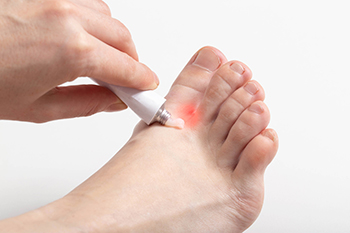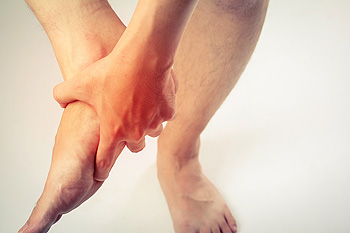
When it comes to improving heart health, we often think about diet and cardio workouts. But what is happening below your ankles can also play a surprising role. Studies show that when exercise is paired with custom foot orthotics, the benefits extend beyond muscle tone and endurance. People experience better balance in their cardiovascular system, including more stable blood pressure and improved patterns in heart rate responses. Proper support from custom orthotics helps align the body during movement, reducing physical stress and promoting more efficient circulation. This combination encourages healthier signals between the heart and the nervous system, supporting overall wellness. If you have been working hard to improve your fitness but still struggle with issues like fatigue, lightheadedness, or inconsistent blood pressure, it could be time to look at your feet. For a tailored solution that supports your entire body, it is suggested that you see a podiatrist for an evaluation and personalized treatment.
If you are having discomfort in your feet and would like to try orthotics, contact Harris Greenberger, DPM from Fairfield County Foot Surgeons. Our podiatrist can provide the care you need to keep you pain-free and on your feet.
What Are Orthotics?
Orthotics are inserts you can place into your shoes to help with a variety of foot problems such as flat feet or foot pain. Orthotics provide relief and comfort for minor foot and heel pain but can’t correct serious biomechanical problems in your feet.
Over-the-Counter Inserts
Orthotics come in a wide variety of over-the-counter inserts that are used to treat foot pain, heel pain, and minor problems. For example, arch supports can be inserted into your shoes to help correct overarched or flat feet, while gel insoles are often used because they provide comfort and relief from foot and heel pain by alleviating pressure.
Prescription Orthotics
If over-the-counter inserts don’t work for you or if you have a more severe foot concern, it is possible to have your podiatrist prescribe custom orthotics. These high-quality inserts are designed to treat problems such as abnormal motion, plantar fasciitis, and severe forms of heel pain. They can even be used to help patients suffering from diabetes by treating foot ulcers and painful calluses and are usually molded to your feet individually, which allows them to provide full support and comfort.
If you are experiencing minor to severe foot or heel pain, it’s recommended to speak with your podiatrist about the possibilities of using orthotics. A podiatrist can determine which type of orthotic is right for you and allow you to take the first steps towards being pain-free.
If you have any questions please contact our office located in Norwalk, CT . We offer the newest diagnostic and treatment technologies for all your foot and ankle needs.

Athlete’s foot bumps are small, itchy, and sometimes painful raised areas on the skin caused by a fungal infection known as tinea pedis. This condition thrives in warm and moist environments, making feet a common target. People who frequently wear tight or non-breathable shoes are at higher risk, as sweat and heat create the perfect setting for fungal growth. Walking barefoot in public places, such as locker rooms, areas around swimming pools, and communal showers, increases exposure to the fungus. Individuals with weakened immune systems or underlying conditions like diabetes may be more susceptible. Sharing footwear or towels with an infected person can also spread the infection. If you notice bumps on your feet that are itchy, it is suggested that you visit a podiatrist who can accurately diagnose and treat athlete’s foot.
Athlete’s foot is an inconvenient condition that can be easily reduced with the proper treatment. If you have any concerns about your feet and ankles, contact Harris Greenberger, DPM from Fairfield County Foot Surgeons. Our podiatrist will treat your foot and ankle needs.
Athlete’s Foot: The Sole Story
Athlete's foot, also known as tinea pedis, can be an extremely contagious foot infection. It is commonly contracted in public changing areas and bathrooms, dormitory style living quarters, around locker rooms and public swimming pools, or anywhere your feet often come into contact with other people.
Solutions to Combat Athlete’s Foot
- Hydrate your feet by using lotion
- Exfoliate
- Buff off nails
- Use of anti-fungal products
- Examine your feet and visit your doctor if any suspicious blisters or cuts develop
Athlete’s foot can cause many irritating symptoms such as dry and flaking skin, itching, and redness. Some more severe symptoms can include bleeding and cracked skin, intense itching and burning, and even pain when walking. In the worst cases, Athlete’s foot can cause blistering as well. Speak to your podiatrist for a better understanding of the different causes of Athlete’s foot, as well as help in determining which treatment options are best for you.
If you have any questions please feel free to contact our office located in Norwalk, CT . We offer the newest diagnostic and treatment technologies for all your foot and ankle needs.

The plantar fascia is a long, thick band of tissue that spans from the heel bone along the bottom of the foot to the toes. The plantar fascia supports the bottom of the feet and toes during walking, running, and jumping. The plantar fascia can become overly stressed or even tear or rupture from overuse or injury, causing pain and inflammation which causes plantar fasciitis. Being obese, standing or working on your feet for prolonged periods of time, or having flat feet or high arches can all contribute to this condition. Additionally, engaging in activities that involve dancing, marching or running can also contribute to, or possibly worsen the symptoms of plantar fasciitis. Wearing certain footwear can also put you at an increased risk of developing this condition such as high heels, flip flops, worn out shoes, or other types of footwear with inadequate support. A podiatrist will use a variety of treatment protocols to treat plantar fasciitis depending upon the severity of the condition and how long the patient has been suffering from it. If you have this kind of foot pain, it is suggested you schedule an appointment with a podiatrist for a diagnosis and appropriate treatment plan.
Plantar fasciitis is a common foot condition that is often caused by a strain injury. If you are experiencing heel pain or symptoms of plantar fasciitis, contact Harris Greenberger, DPM from Fairfield County Foot Surgeons. Our podiatrist can provide the care you need to keep you pain-free and on your feet.
What Is Plantar Fasciitis?
Plantar fasciitis is one of the most common causes of heel pain. The plantar fascia is a ligament that connects your heel to the front of your foot. When this ligament becomes inflamed, plantar fasciitis is the result. If you have plantar fasciitis you will have a stabbing pain that usually occurs with your first steps in the morning. As the day progresses and you walk around more, this pain will start to disappear, but it will return after long periods of standing or sitting.
What Causes Plantar Fasciitis?
- Excessive running
- Having high arches in your feet
- Other foot issues such as flat feet
- Pregnancy (due to the sudden weight gain)
- Being on your feet very often
There are some risk factors that may make you more likely to develop plantar fasciitis compared to others. The condition most commonly affects adults between the ages of 40 and 60. It also tends to affect people who are obese because the extra pounds result in extra stress being placed on the plantar fascia.
Prevention
- Take good care of your feet – Wear shoes that have good arch support and heel cushioning.
- Maintain a healthy weight
- If you are a runner, alternate running with other sports that won’t cause heel pain
There are a variety of treatment options available for plantar fasciitis along with the pain that accompanies it. Additionally, physical therapy is a very important component in the treatment process. It is important that you meet with your podiatrist to determine which treatment option is best for you.
If you have any questions, please feel free to contact our office located in Norwalk, CT . We offer the newest diagnostic and treatment technologies for all your foot care needs.

